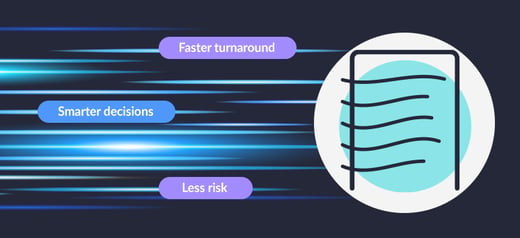Over the weekend as the conversation was heating up around the contract between the EU and AstraZeneca for the supply of Covid-19 vaccine the EU published the contract, and we ran that contract through ThoughtRiver.
We wanted to see how quickly our AI would find the material issue, the term "best reasonable efforts" and whether it would flag that as an issue for me (the lawyer) to review. Within 3 minutes ThoughtRiver had reviewed the agreement and flagged the definition of "best reasonable efforts" to me as an issue to be aware of as I reviewed the contract.

The fact that our system managed to find the material issue that was causing such debate was interesting to me, but the debate that it has sparked is far more interesting. Contracts need to be simplified, they are too full of difficult to understand legalese and are too confusing for most people.
A great contract provides clarity, and aids understanding. It made me think about our mission at ThoughtRiver "To make all contracts easy to understand for everyone". This example really rammed home the importance of that mission to me and made me even prouder to work at an organisation with such a far ranging mission.
The battle to simplify contracting is one fought on many fronts, and definitely a specific area where legal tech can help. At ThoughtRiver we think a lot about standardisation and the importance of that in accelerating contracting. An example that we talk about a lot is that of the unnecessary variation in wording found in almost all legal contracts, this variation causes unnecessary reading as the conundrum for the lawyer is that you don't know whats in a contract until you have read it, so you have to read every word of every contract. To give a specific example, we looked at the choice of law clause, one of the simplest clauses in all contracts and we found 335,000 different ways of saying this same simple thing across 1.2M contracts. What we need is a standard to review against, so that instead of the lawyer having to read every word of the contract they can instead focus their attention on language that is not standard or common, or that represents the commercials being agreed.
Our platform has been designed to do this, we augment the lawyer, we aim to give them experience beyond their years. We review the contract and then we flag issues as seen above, for the lawyer to then focus their attention on. They don't have to read every word, only the material issues, as the AI can tell them that the rest is common language and/or ok as it does not breach their contracting policy. By doing this we are not only getting rid of unnecessary reading time for the lawyer, but we are also helping them distill a contract down to the key issues for them to then work through to resolution. We are accelerating the process of contracting for them.




